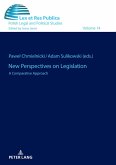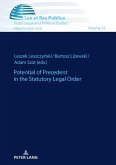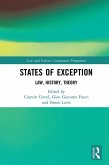Post-analytical philosophy of law departs from the traditional view which considers philosophical cognition merely as a sense-making and optimizing activity. It also questions the apparently universal and objective character of the theorems put forward by existing analytical philosophy. Just like every scientific trend whose name is supplemented with the "post" prefix, it does not break with its past, but rather seeks to critically revisit its established achievements. The main goal of post-analytical philosophy is no longer to impose a conceptual structure upon chaos in the realm of legal and political phenomena. Rather, it seeks to deconstruct the analytical, both philosophical and legal, narrative to expose it as a collection of schemes which oversimplify - if not mystify - the legal and political reality. This kind of diagnosis paves the way towards the construction of a positive program of post-analytical philosophy of law, which the focus of this book.
Dieser Download kann aus rechtlichen Gründen nur mit Rechnungsadresse in A, B, BG, CY, CZ, D, DK, EW, E, FIN, F, GR, HR, H, IRL, I, LT, L, LR, M, NL, PL, P, R, S, SLO, SK ausgeliefert werden.









